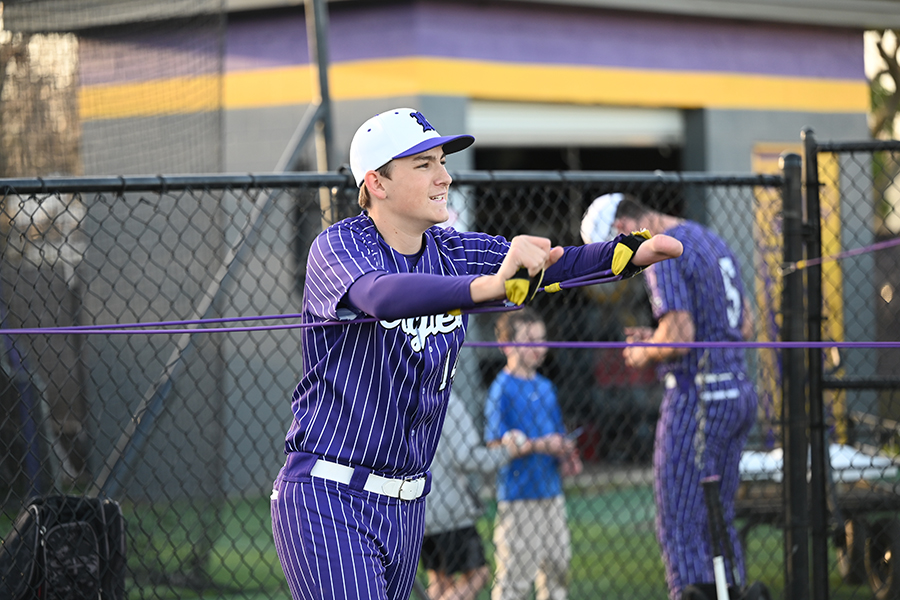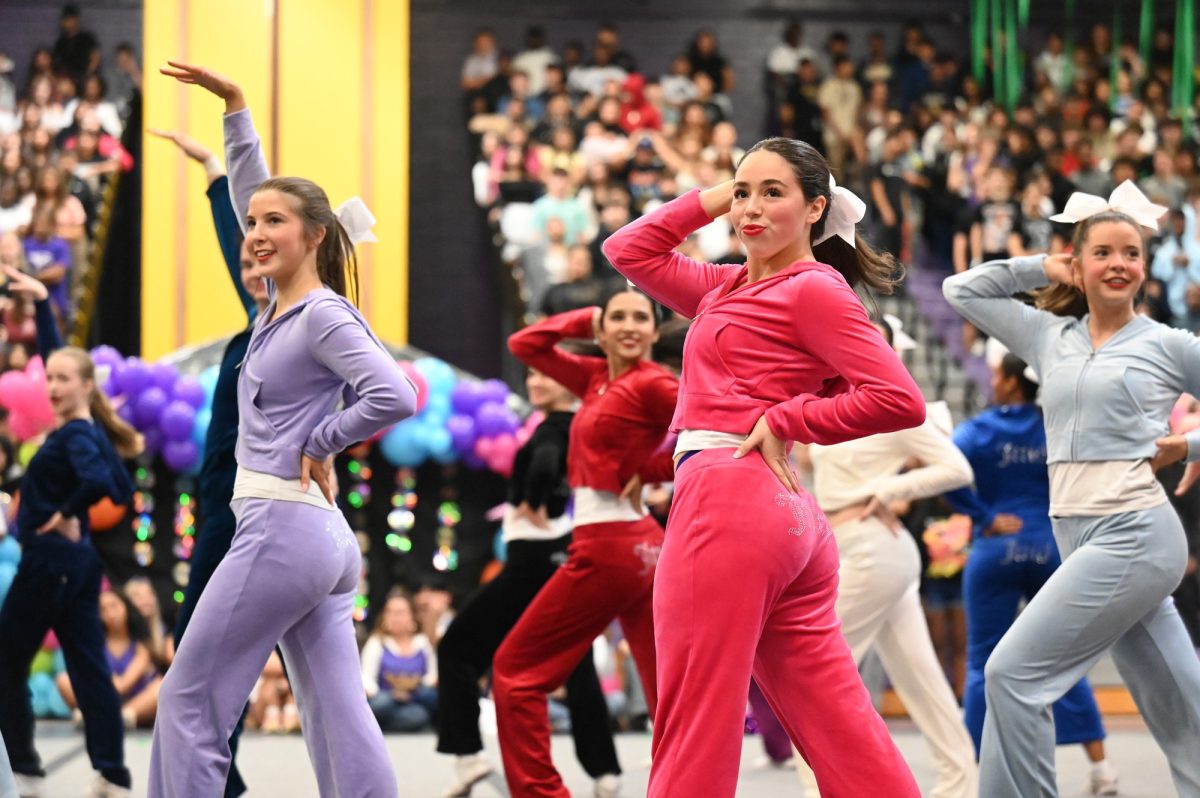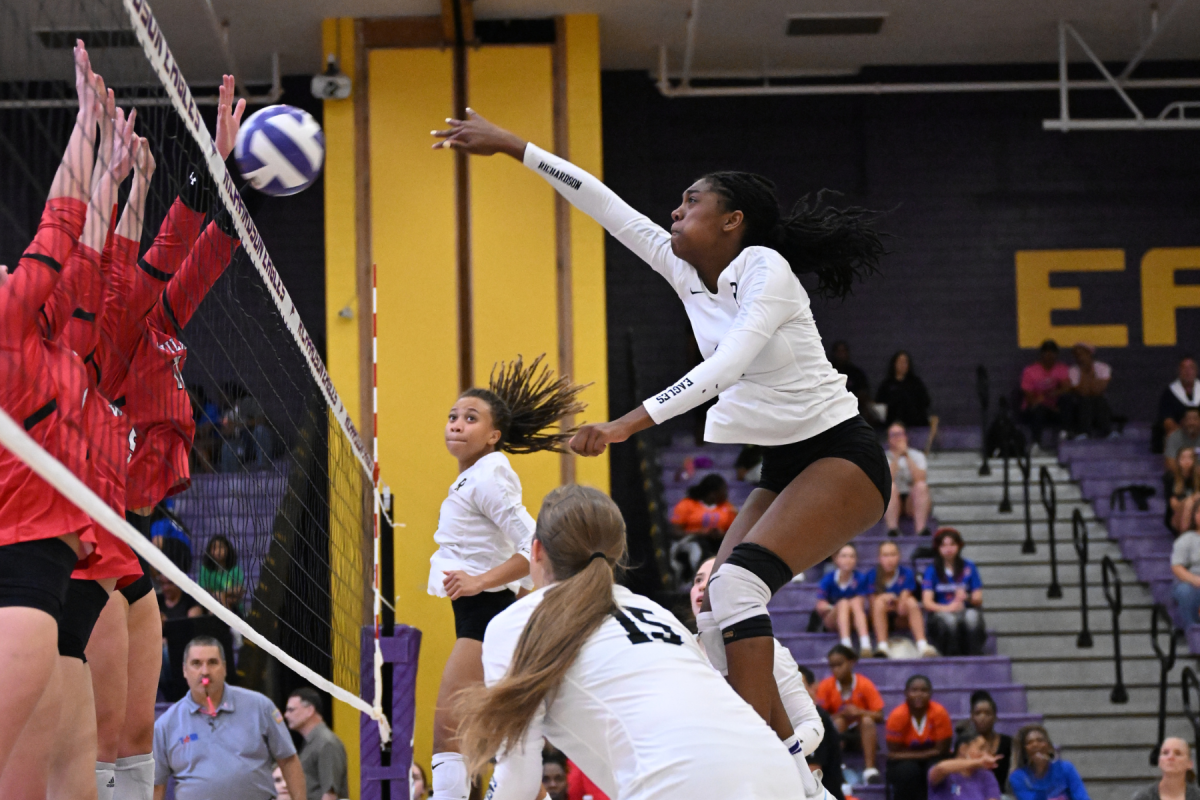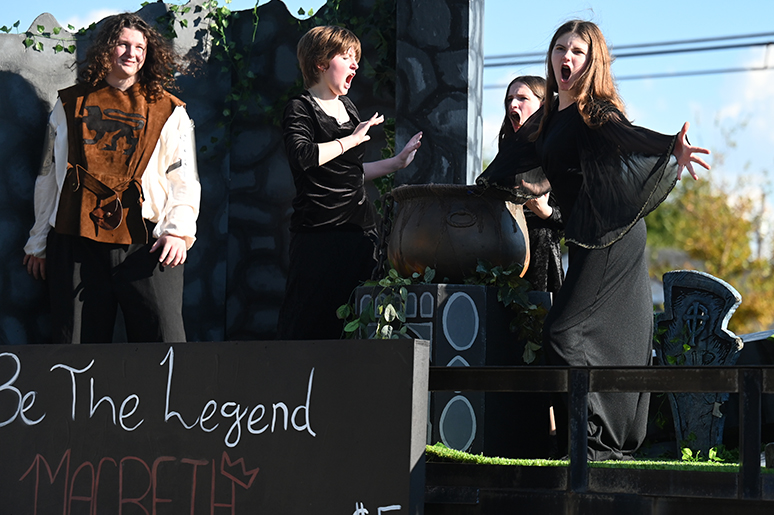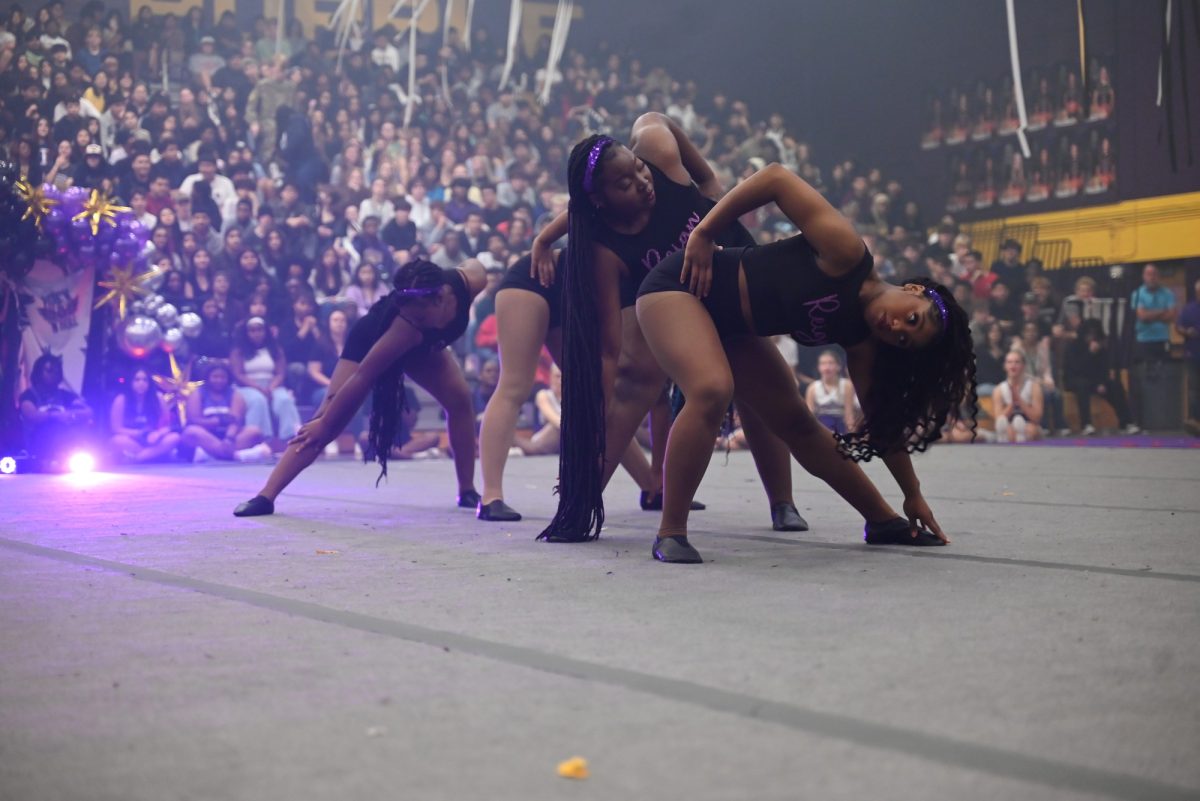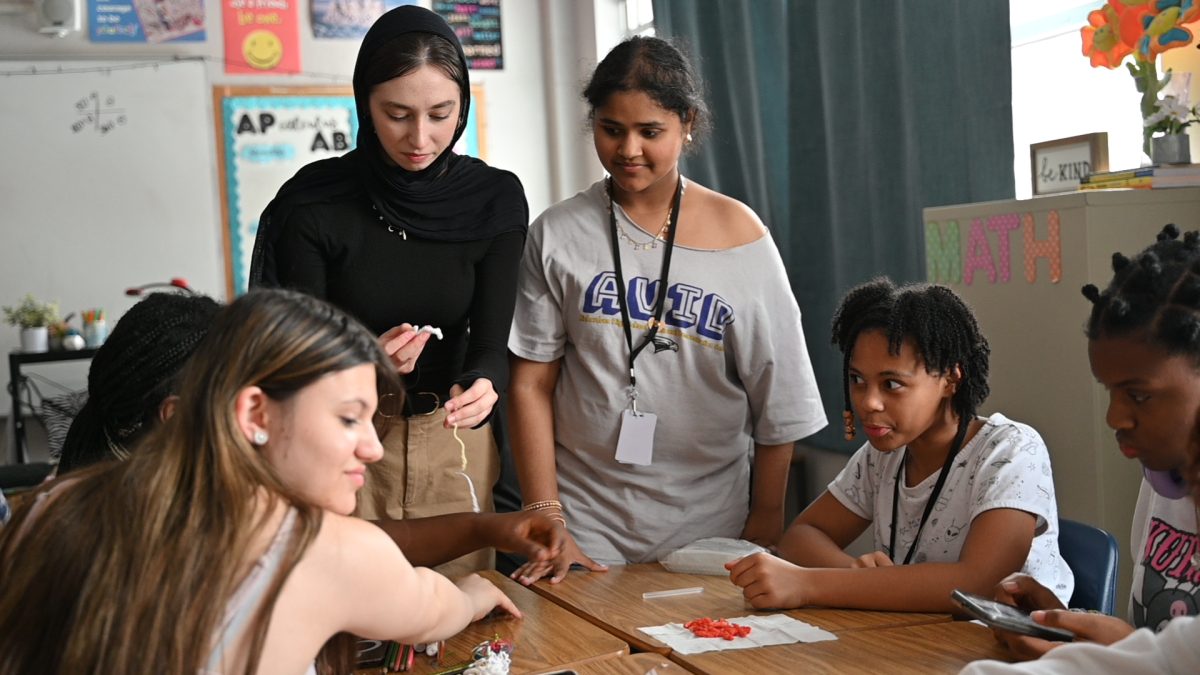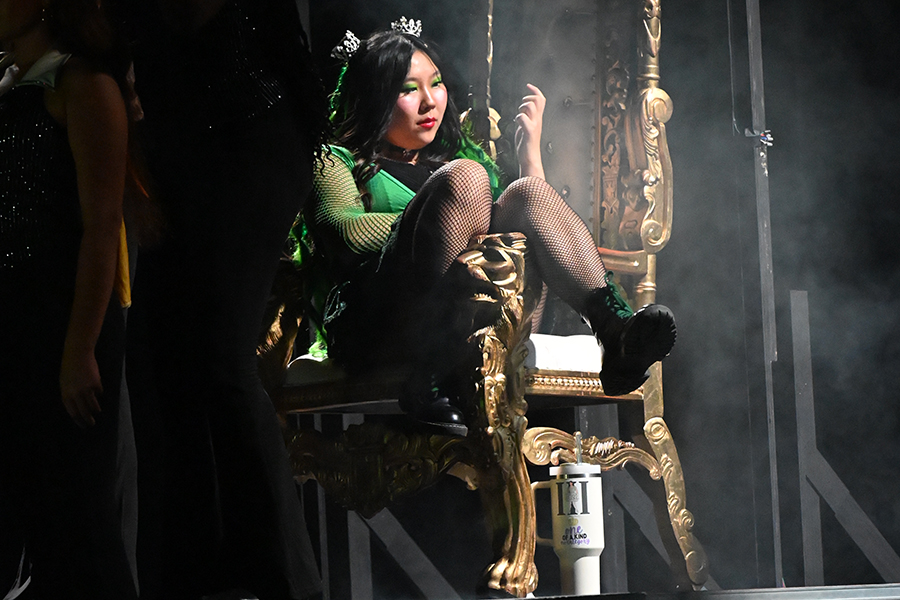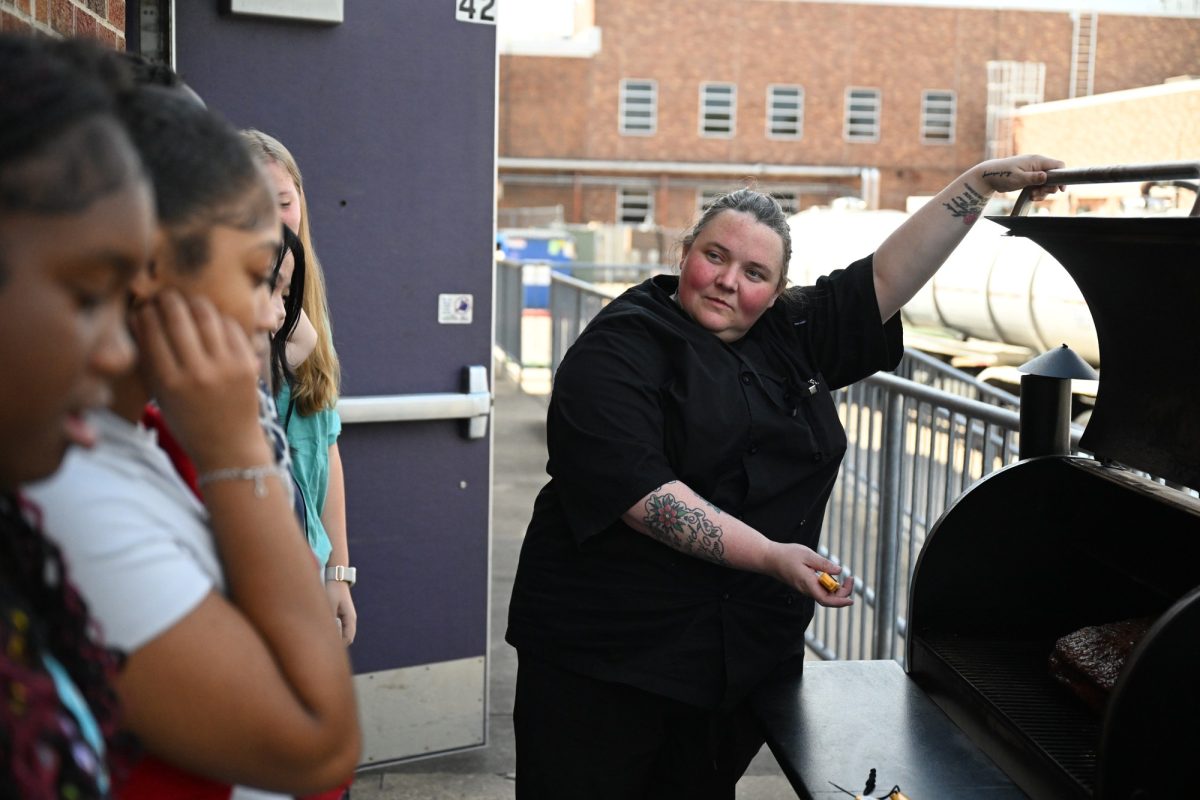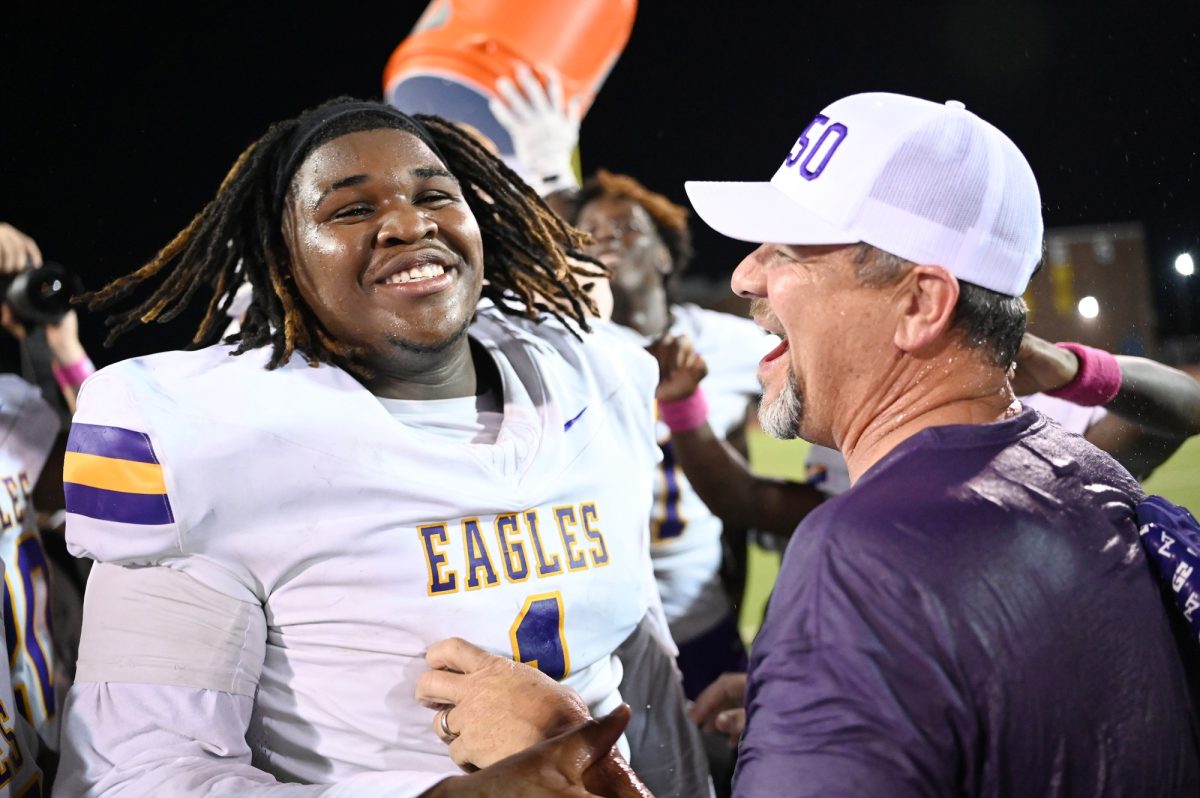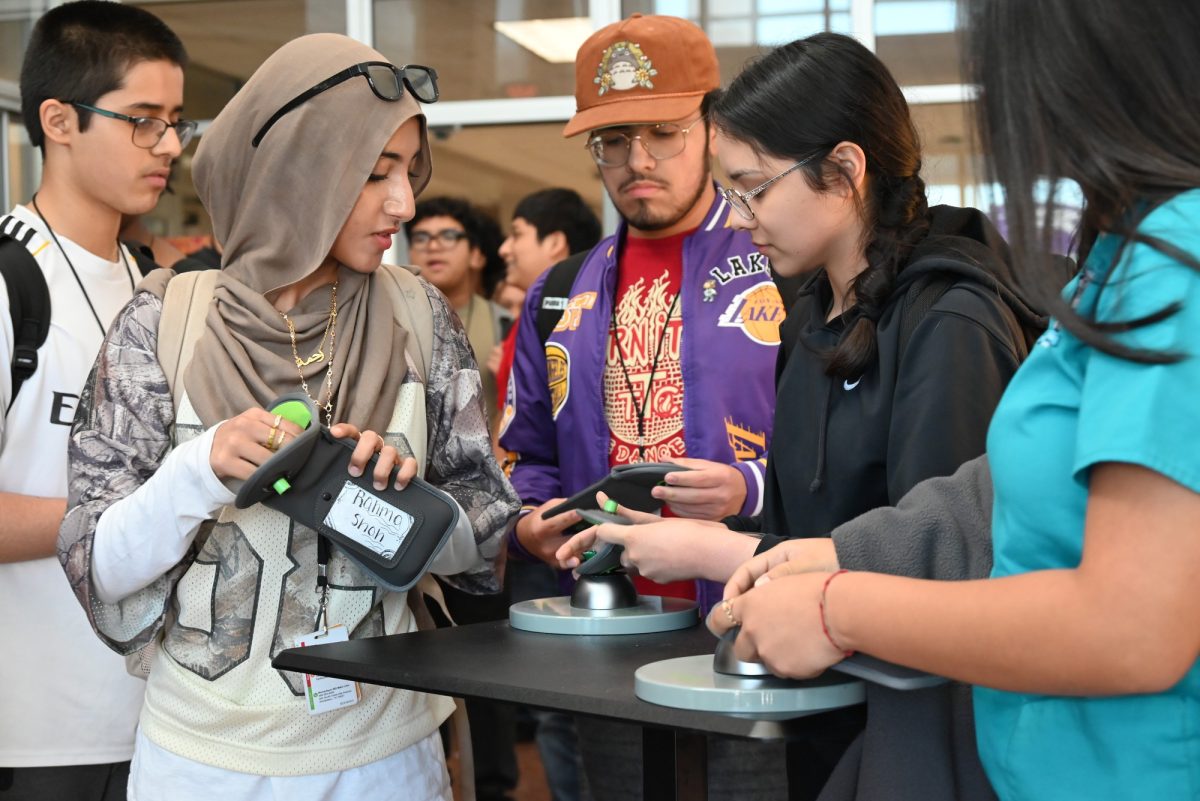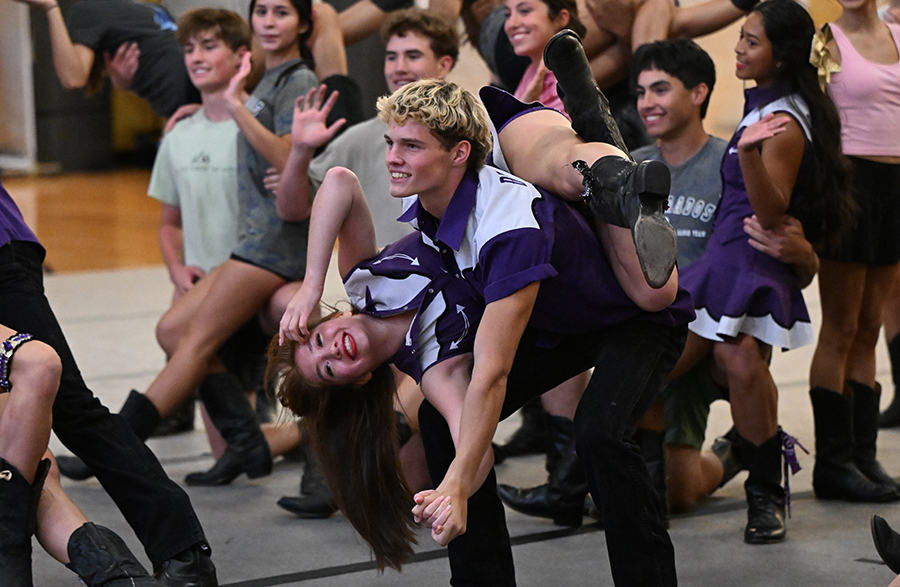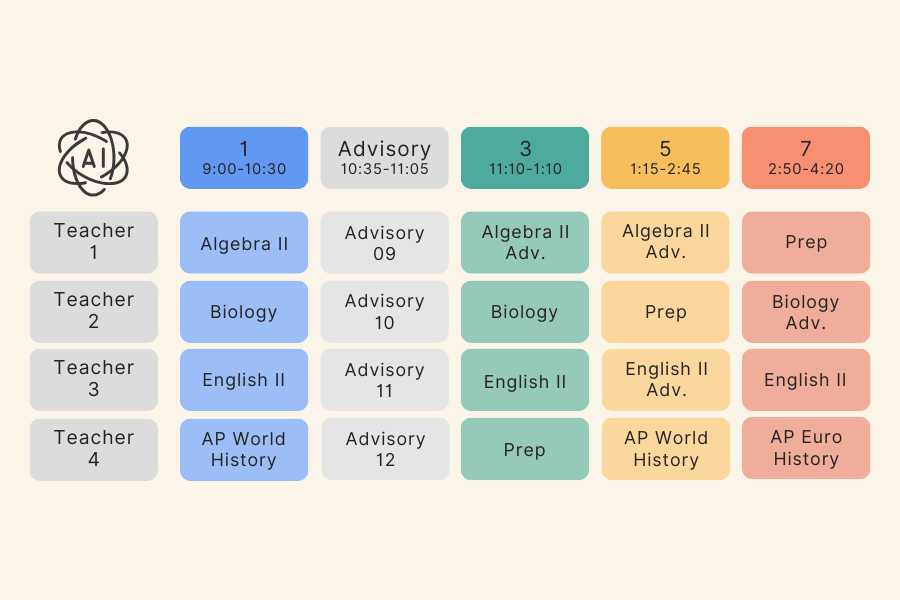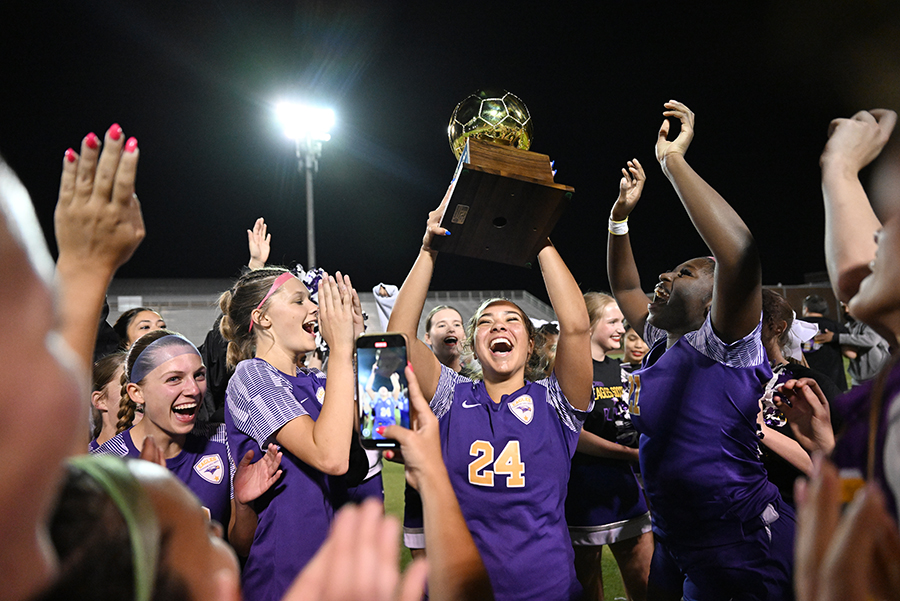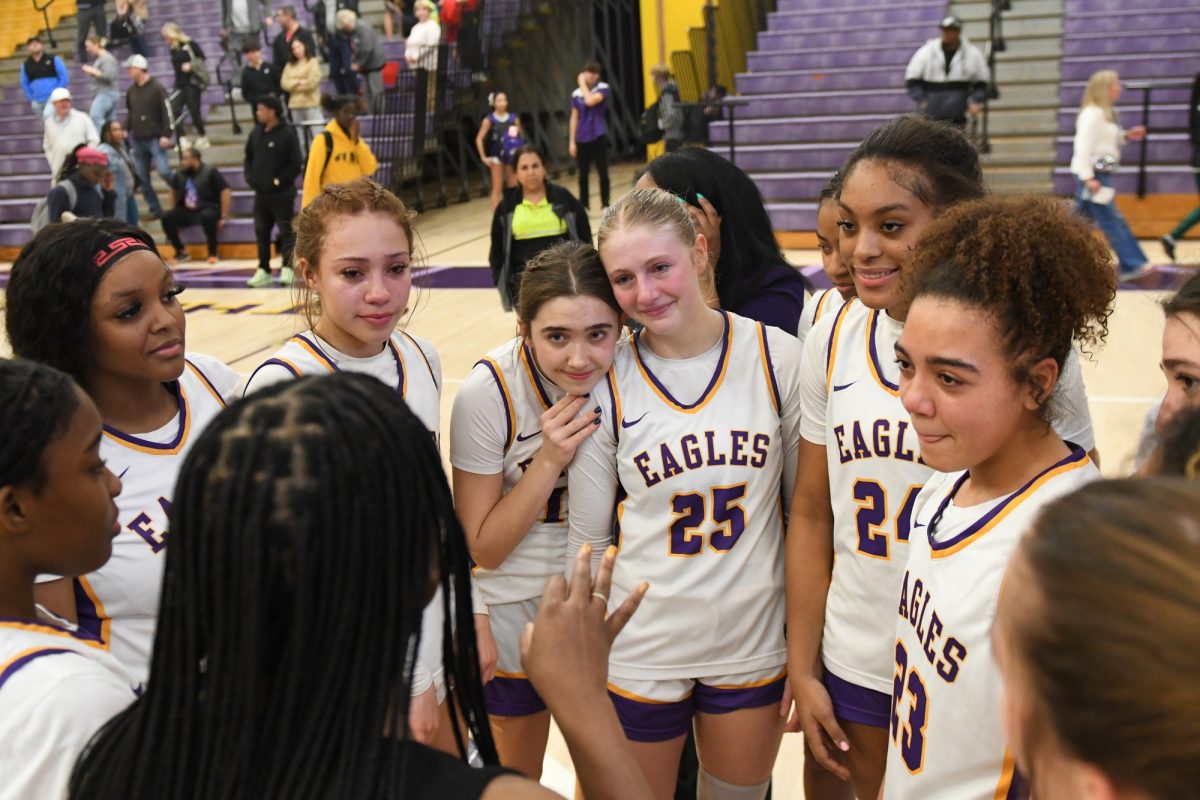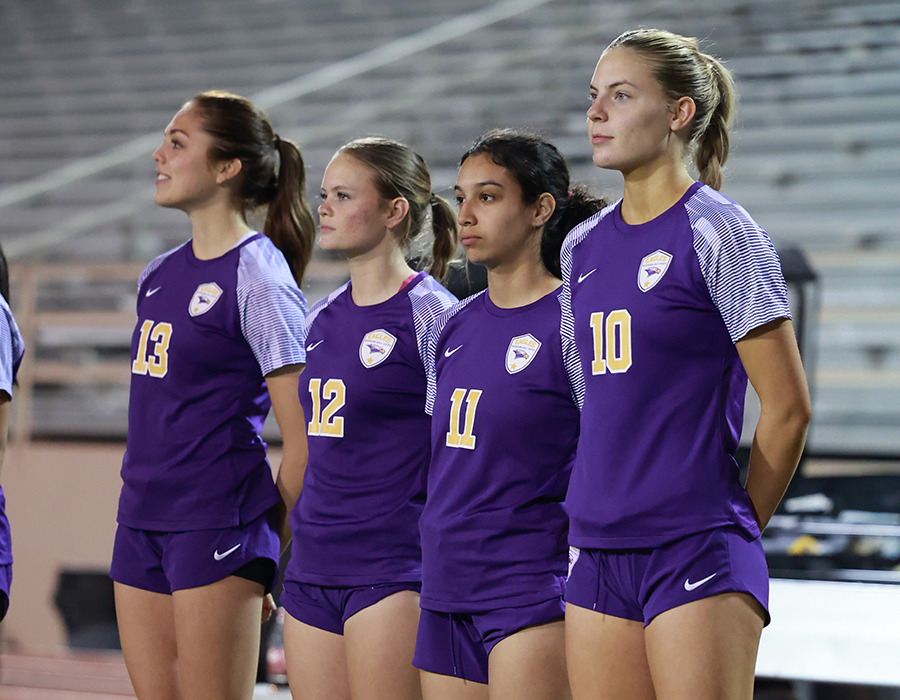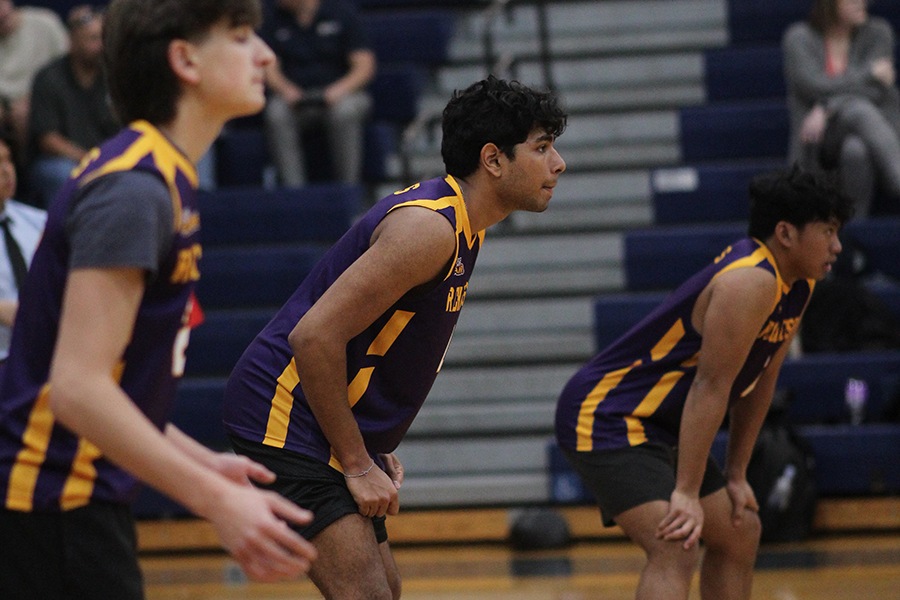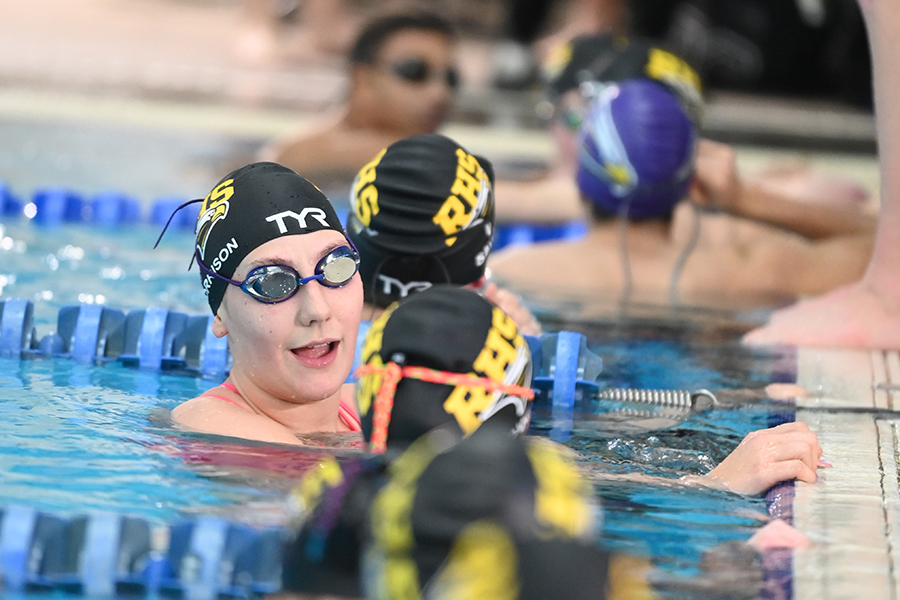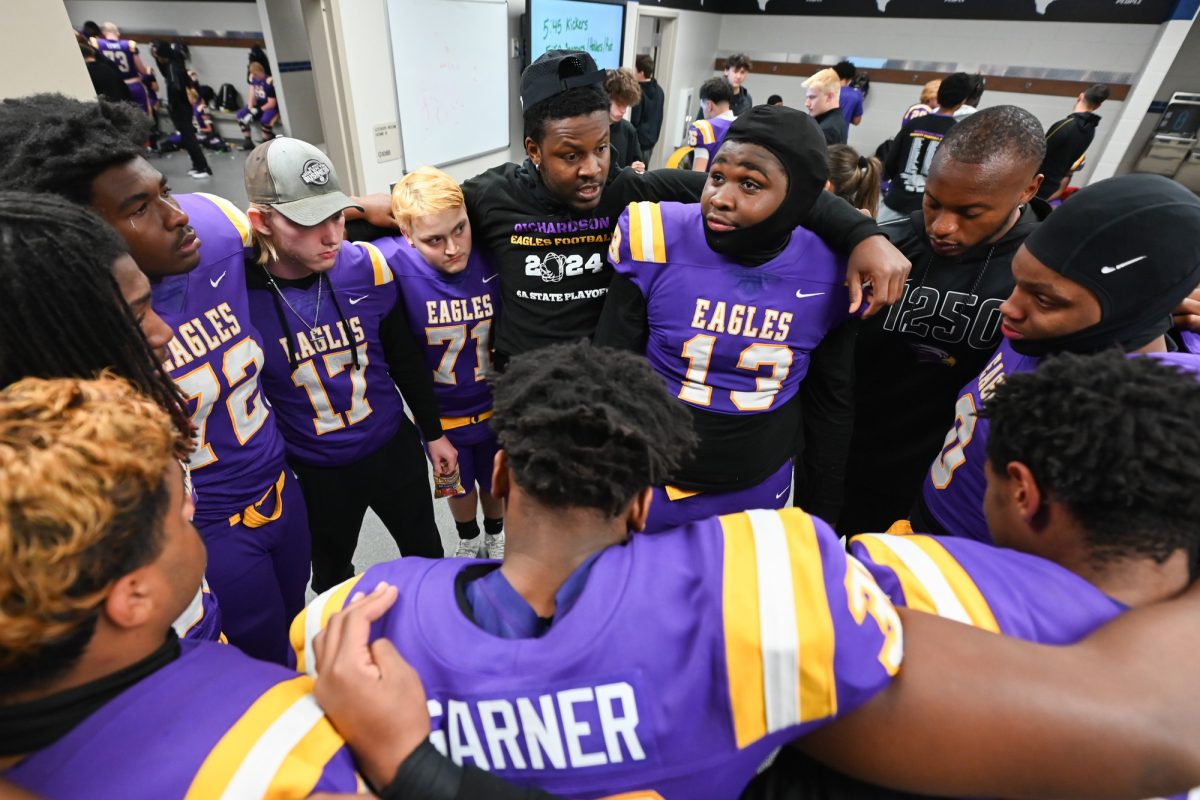As senior varsity relief pitcher John Potter steps up to the mound for the first baseball game of the season, he can feel every eye looking straight through him. He hears the opposing team in the dugout make comments about his hand, but he ignores them. He just thinks to himself, “once I strike them out, they won’t have anything to say.”
With the ball gripped in his right hand and his glove tucked underneath his left arm, he takes a deep breath and starts his wind up. With seamless precision, he throws a strike and shuts them down.
“It’s definitely surprising for them,” John said. “You can kind of tell that they’re not expecting me to be as good as everyone else.”
John has been playing baseball his whole life despite only having one hand. When he was born, the doctors diagnosed him with Symbrachydactyly, a condition where the fingers in his left hand did not have any bones. He had to undergo surgery to have them removed when he was a newborn.
Immediately after John was born, his dad, Edward Potter, immediately noticed there was something wrong with his hand. He felt “shell shocked” as the doctors calmed him down and explained what was happening. When Edward finally was able to clear his mind and process what was happening, he couldn’t help but wonder how his son would be able to drive, mow the yard, or even tie his shoes.
“All of these mundane things that everybody takes for granted,” Edward said. “I was just at a loss that he’s not going to be able to do that or experience that.”
After the surgery, John’s pediatrician gave his parents what they said was the best piece of advice on the journey ahead. He told them that John is “no different than any other child, and he’ll overcome whatever.”
Growing up, John couldn’t help but look up to his older brother who played baseball. He was always the bigger, stronger and taller kid. Every moment he wasn’t doing homework, he was playing baseball.
John didn’t never thought about the fact that he didn’t have a left hand. He just knew he wanted to be like his older brother and play baseball.
“There’s nothing that’s really stopping me from going out and being a baseball player,” John said.
When he told his parents he wanted to play baseball, they were supportive and wanted him to succeed. His parents raised him to try things out with the expectation that he can get them done without any help. Baseball wasn’t any different.
John quickly learned how to use his left arm to hold the glove, throw the ball with his right hand, and to adjust the glove onto his right hand after pitching. He also learned how to swing the baseball bat by using his left arm to support the bat while swinging with his right hand.
“It was pretty easy to adapt,” John said. “I’ve always had one hand, so it’s just the way I learn to play.”
As John was learning how to play baseball with one hand, Edward used Major League Baseball player Jim Abbott’s playing technique as an example to help him. John ended up using a similar style to Abbott, but instead of holding the pocket of his glove on his nub, he holds it in his elbow because it’s easier and comfortable for him.
Edward also went to equipment stores with John and looked at every glove to see which ones were easier to remove quickly. They would also search for a bat that felt good and was balanced enough to swing with one arm.
“It was a lot of trial and error and time spent in stores testing everything,” Edward said.
John said his dad was there the whole time helping him learn how to play baseball.
“I don’t know if he had some genius idea that fixed everything, but he was definitely there to help me figure it out,” John said.
John’s parents signed him up to play T-ball when he was in elementary school. In middle school, he played for select travel teams such as the Patriots and Titans.
Since middle school, Edward told John that he has to work harder and be better than anyone else just to get the chance to play baseball. While other kids can be ok because they’re still growing, John has to be great.
“The second that he doesn’t hit a ball or can’t field the ball or misses fielding a ball or doesn’t throw as hard as the other kids, it’s because of the hand,” Edward said. “They immediately go to that.”
The year before high school, John tried out a prosthetic that his doctors molded onto his arm and hooked onto a baseball bat for hitting. While he wasn’t terrible playing with the prosthetic, it felt weird and unnatural as he’s used to living his whole life with just one hand. Eventually, he realized he was better off without it.
In his freshmen year, John played baseball in Lake Highlands High School but transferred over to Richardson High School during his sophomore year and played for their JV team as a starting pitcher.
When John arrived, head baseball coach Mike Tovar received a phone call from Edward letting him know that he’s coming over to play on the team. That was all Tovar knew before calling the coaches at Lake Highlands to ask about him. That’s when he found out that John only had one hand.
“I was like, ‘oh, man,'” Tovar said. “This is a first for me.”
Tovar said when John transferred, the team was unsure whether they should step in or offer support. But they immediately found out he was no different than any other player and that John didn’t want any special accommodations or any help.
“I was just in awe of this kid,” Tovar said. “He’s talented as a baseball player, but he doesn’t let that situation hinder him at all.”
John said it became a norm for him to prove himself a little bit more than the next guy whenever he meets a new coach. He wants to let them know that he’s not just some kid who wants to be on the baseball team, he actually wants to play.
Junior jv pitcher Sam Mitchell said he first met John in the middle of off-season. When he noticed he only had one hand, Mitchell wondered how he could throw and catch the ball. After watching him play, he realized he had no disadvantages.
“He’s almost at an advantage because he can almost do his transfer [of the glove to his hand] as fast as anybody, if not faster,” Mitchell said.
Mitchell said the team never had to accommodate for him or change any of the drills for him because John is able to pick up on things really fast and work through despite only having one hand.
Tovar said as the number one pitcher, John was always doing a great job in winning and putting up a lot of innings with his off-speed pitches.
“He’s got to come in and shut down [his opponents] and throw strikes,” Tovar said. “And he’s done it.”
Edward said he’s seen the opposing team try to take advantage of John’s hand during the games by attempting to bunt, where the batter deliberately hits the ball softly to get past the pitcher, and assume he’s not able to quickly get the glove on to catch the ball. John would immediately stops their attempts by sometimes not even bothering to put his glove back on and field barehanded.
John said he’s not offended that opposing team feels like they can take advantage of his hand because he can take whatever they give to him.
“Who am I to say no if they think they can just bunt the ball?” John said. “That’s on them. That’s their mistake.”
John said whenever he shuts down their attempts to bunt, the opposing team walks back to the dugout upset and angry because their coach or teammates probably told them that bunting would work. It ruins their team morale and gives John’s team all the momentum they need to keep wining.
“That’s just an amazing feeling,” John said.
John said he first started hearing negative comments about his hand when he played T-ball, however, there wasn’t much to deal with. As he got older, the trash talk became harsher. On the mound, John would hear comments like “grow a second hand, maybe you’ll feel that one” and “maybe a second hand will make you pitch better.” However, because he became used to them, he never let the comments get to him.
“They don’t know what they’re talking about,” John said. “They don’t know me.”
After games, parents, opposing coaches, and players would often approach John’s family and teammates just to say how inspiring he was. When John was 12, he was in the parking lot packing up his gear after a game when a stranger suddenly walked up to him. The man said, “Dude, you’re a really good baseball player,” handed John a $100 bill and disappeared just as quickly as he’d appeared.
“I wish I figured out who he was and get more money,” John said.
Mitchell said he’s learned different techniques and playing styles from John over the years. John taught him the “knuckleball” where you rearrange your fingers to throw the ball so there’s no spin, causing it appear to move slower and shakier.
“It’s interesting to learn things by just even watching him,” Mitchell said.
Mitchell said John developed these techniques not only because he’s at a disadvantage of only having one hand, but because he wants to be a good baseball player and perform really well.
John and his teammates would often joke around in the locker room about his hand such as “getting nubbed” but it comes from love. He knows that it means he’s much a part of that locker room as any other guy.
The senior class would also poke fun at John whenever he was a sophomore but he enjoyed it. Instead of taking pity on him, John was just another underclassman.
In John’s freshman and junior year, John over-pitched which stressed his right arm and aggravated the growth plate in his elbow.
Tovar said he first found out about John’s injury during the fall game against Garland High School. He noticed his throwing velocity was going down and asked what was going on. John told him that his elbow has been hurting and his arm wasn’t feeling great.
John was initially hesitant to mention his arm because there is a huge culture amongst pitchers of just “thugging it out” and pitching through the pain. Talking to someone about it generally means risking game time and not being able to play.
“You’re missing games that that could really impact your career,” John said.
So when John was a freshmen, he pitched when he shouldn’t have and it ended up taking a serious toll on his arm. It made him realize it’s in his best interest to get his arm checked out and make sure it’s good to play.
When he was a junior, John had the option to either put screws into his elbow to help him recover or to stop throwing and hope he’d still be able to play next year. He decided to insert the screw to ensure he doesn’t miss the chance of playing in his senior year.
Despite his doctors telling them to wait, they were understanding of his situation and the risk of putting baseball in jeopardy for the remainder of high school.
“Baseball has made him happy,” Edward said. “He’s worked really hard at it. I didn’t want to need any physical reason as to why he’s unable to play his senior year.”
John and his family were more willing to take the chance of surgery because he’s already been through it as a baby.
“He had already proven he successfully could do that part,” Carolyn said. “There is still risk in any surgery. But it was his calling and we’re just supportive of his choices.”
John was able to use his arm for everyday use after three weeks of recovery, but he couldn’t throw with that arm for another couple of months. He said during his recovery time in his junior year, he had a lot more support compared to his freshmen year because he had a greater community.
Despite his injury, John was at practice every day in full uniform to help the team in whatever way he can, whether that’s tossing the ball to hitters or feeding the ball machine. He also continued to go to every game and support his team in the dugout.
He said letting his elbow recover was rough, because he doesn’t like to lean on people but he had to ask for a lot of help during that time. He received a lot of help from his parents when he was on the couch unable to do anything for the first couple of weeks.
Mitchell said the team supported John while he was recovering by helping him with the workouts and stretches his physical therapists prescribed and even participated with him.
John said from his journey of recovery, he learned to be less selfish whenever he throws. He is more careful and takes better care of his arm.
Tovar said after going through an injury, he knew John didn’t want to feel that kind of pain again. He knew John was afraid that when he throws, his injury was going to happen all over again.
“You can see that was kind of in his head” Tovar said. “It was a stumbling block, but he got through that and he remained through it.”
Edward said he believes John’s more sensitive about pain, especially to his teammates. He’s more worried about their injuries and urges them to take it seriously. However, John said trying to get any baseball player to listen is rough because it’s “deep seeded in pitchers to just pitch through the pain, pop four ibuprofens and just keep throwing”.
“I’ve definitely learned my lesson and I’m trying to get these underclassmen to listen,” John said.
After four weeks without pitching in a game, John decided to leave the RHS baseball team in the spring semester of his senior year. He said it’s hard to consistently stay a good pitcher if he’s not throwing to a batter for a long period of time.
John said sitting on the bench for almost every game was brutal, especially when they lost. He felt like there was good opportunities for the coaches to put him in to help the team. While he wished he stood up for himself sooner for not getting any playing time, he doesn’t regret leaving the team.
Now, John plans on playing summer ball and intramural baseball in college.
“My career is not over quite yet,” John said.
Despite leaving, John still supports his old teammates by showing up to their games, talking to them in the dugout and eating with them after .
“I’m definitely hyping them up because they’re still my teammates even if I’m not on the team,” John said.
Over time as a baseball player, John said he developed a “mental toughness”. He used to let what people say get to him but now, he’s more composed.
“It’s just confidence,” John said. “If I could go back and tell younger me to be more confident and just know that you’re better, I definitely would.”
He said playing baseball has an enormous effect on who he is. Being a baseball player proved to himself that he can overcome adversity.
“I am not just some one handed kid who’s always needing help from other people,” John said. “I can stand up for myself and I can be good at things.”
Edward said looking back, he felt naive to be worried about how John was going to be able to perform his everyday tasks when he easily “blown right through” them.
Tovar said John brings in positive energy to the team, especially when he’s non-stop talking and joking around.
“The fact that everyone loves John, from the coaches to the players,” Tovar said. “They’re always going to be supporting him.”
John said he doesn’t want to be seen as someone who’s really good for a disabled kid. He just wants to be a baseball player.
“I think I’ve kind of painted myself just as any other player,” John said. “And I’m kind of proud of that.”

